On the occasion of International Women’s Day, the Islamic Culture Foundation interviewed Maysoun Douas, an expert in innovation, PhD in physics and member of Madrid City Council. Her interdisciplinarity has led her to develop competences in Innovation, Employment and Entrepreneurship. In addition, she has worked with the European Commission and in 2021 she was included in the Top 100 women leaders list in Spain.
You have a PhD in physics and you are an expert in innovation. The natural sciences, entrepreneurship and even politics are traditionally masculinised fields. How did you decide to enter this world and how did you experience it as a Muslim woman?
I think that all the fields you mention, rather than being predominantly male, have one thing in common: they need dedication. You need to have the time to delve into them, build your social network, do your reading, contrast your ideas, travel, get to know… all that requires a lot of time. I think this is our great challenge as women, to reclaim our time to dedicate it to what we want, instead of being conditioned by culture, or by anything else that prevents us from developing fully in what we want.
Being multifaceted nowadays has many advantages. In your case, how do you think this has affected your work? What do you think are the greatest benefits you bring to society?
I went into each of these fields out of curiosity and I stayed there because I felt very comfortable and, above all, because I saw that I could contribute something to society. For example, with my PhD and with my vision of a research career. In entrepreneurship, I experienced first-hand all the challenges that women face, but also all the challenges of entrepreneurship in general, as a professional activity. The field of innovation, I think, is what fascinates me, what I am best at and the contribution I make to the ecosystem, being able to connect people, ideas, projects or solutions.
With regards to politics, I believe that we are all called to participate in the common good. We all have a civic responsibility to contribute to, ensuring that the public administration is also aware of our needs and concerns. And once you are in, you realise that this diverse role is really needed in the political scenario, especially in day-to-day politics.
In politics, I believe that we are all called to participate in the common good. We all have a civic responsibility to contribute to, ensuring that the public administration is also aware of our needs and concerns.
Lately, the hot topic in Madrid is that Muslims do not have a place to die, we do not have a public cemetery, nor a private cemetery to go to in case of death, and thus have a burial according to our religion. This issue is already included in several articles, not only in the 92 [the State Cooperation Agreement with the Islamic Commission of Spain], but also in article 80 [the Religious Freedom Law]. There are many articles that endorse and recognise the right to burial and the existing discrimination for reasons of faith and religion.
You are a visibly Muslim woman who has held a representative position in a left-wing candidacy. Bearing in mind that an important part of the left tends to define itself as secular or even anti-religious, and that there is also an emerging discourse by people of Muslim origin that affirms the incompatibility between feminism or the left and Islam, what has the experience been like? Has it influenced your political work in any way, and the fact that you will or will not repeat your candidacy in the next elections?
I believe that in Spain, in our young democracy, we have made progress in many areas. But I believe that there are still many challenges that we all have to resolve, and I believe that among them is the understanding of cohabitation and coexistence. In fact, the issue of women’s bodies has been and continues to be debated, when in reality we should have more than overcome this question.
Women’s bodies are still a matter of public debate in the 21st century. The fact that in 2023 we are talking about these things should make us reflect on what importance we attach to them.
I think there is a lot of confusion on many sides, and a person like me, who has been in many spaces and is involved and committed in every space she is in, sees these points of inflection, these nuances that need to be discussed and debated. We should work and raise awareness on the fact that we cannot generate ghettos and more ghettos, but rather open up all those transversalities that we women have. And in my case they consist of being a woman and being Muslim, being a mother, being a physicist, being a politician, being an entrepreneur… Each one of them has an experience and a connection with society. I believe that we cannot be setting quotas for participation, quotas for representation, quotas for the voice of different collectives because that only impoverishes us.
The veil is a widely mediatised element. It is the focus of the media and political discourse, which often attacks it, or instrumentalises it in defence of women’s rights (very common among European right-wing and extreme right-wing parties). How does this affect Muslim women and how can the left position itself in this respect?
As I said before, I think that women’s bodies are still a matter of public debate in the 21st century. The fact that in 2023 we are talking about these things should make us reflect on the importance we attach to them. And, above all, whether it is a fair debate or whether it is unfair. I think this is something we should have overcome a long time ago. But within these debates, women’s bodies continue to be one of them, how we dress, how we appear, continues to be instrumentalised on the one hand, and on the other, tutored.
How does this affect Muslim women? It affects them by limiting them from contributing to society, by putting these obstacles or these sticky floors that prevent them in some way from achieving their goals or their desires. Once women are studying or training to do something, even if we are talking about office work, lawyers, accountants or managers, it seems that the hijab is an obstacle for them, even if they are not facing the public. But when we are in front of the public, it is even worse, because first hand you are receiving all these stigmas and with each of the people you deal with you have to make an extra effort to make yourself understood.
Muslims in Spain formally relate to the administration as “communities” grouped under the umbrella of a commission whose representativeness and efficiency is disputed, and which has not managed to fully develop the rights enshrined in the law since 1992. Do you think there should be another model for Muslim citizens to interact with the administration regarding their specific needs? What should this model be?
I believe that, for a very long time, before the establishment of the 1992 agreements, and even after they became part of the rule of law in our State, which made it possible to recognise religious minorities in Spain, there was a time when their collaboration was very necessary, this commission or figures of representatives of different Muslim communities. It was necessary to see how this law was translated into daily life, how it affected them in the development of their activities, or how it affects us as Muslims to be part of society.
Muslim women today are also facing their own challenges, to be able to feel visibly Muslim, without having to hide it in some way.
Today, progress has been made and many of these standards have been incorporated into public law. Once that is done, I do not see much point in the existence of a commission. I believe that we should be appealing to citizen participation, to individual rights, so that Muslims can claim all those rights that are already part of everyday life, that have already landed at the local, regional, national and even, in some cases, European level. And that, so that they can really enjoy full citizenship and not a citizenship like a gruyere cheese, which lacks rights on one side and on the other. I think that, if I had to make an appeal to Muslims, I would tell them to really take ownership of their rights and their demands because it is time for them to do so.
There is a lot of talk about exclusionary hegemonic feminism, implying that racialised women and/or women belonging to social minorities are not included. What do you consider to be the role of so-called Islamic feminism, and do you consider it to be transversal and compatible with the rest of the feminist currents that are expressed on 8M?
I think all women today have a very hot struggle, that of not being undermined in our aspirations, in our presence, in the decisions we have about our bodies, careers, who to be with and how to be, and I don’t think we need anyone to be telling us what level of maturity we need to make those decisions. This is very easy to say, but in the 21st century we are still the subject of debate in a way that is more visceral than logical.
I think Muslim women today are also facing their own challenges, to be able to feel visibly Muslim, without having to hide it in some way. I think we need to be recognised for who we are. We are Muslim women who contribute to society with our values and that does not make us inferior to anyone else.
I also believe that feminism today is much more open and understands that the struggles depend on each one of us. We can be united in the need to stop questioning our bodies, our decisions, our incorporation into working life, public life and so on.
What challenges do you consider that women face in the labour and political sphere today, not only women in the broadest sense, but also those belonging to exclusive minorities and, specifically, those who make their affiliation to a religious group visible?
One of the main challenges is to remove all existing stigmas. To say openly that you are a Muslim woman is almost the same as saying in public that you are a submissive woman, when in fact you are not. Muslim women are courageous women who define ourselves and we don’t need anyone to tut-tut us and tell us what we should do or who we are. It’s not because I say so as a woman, I don’t need to define myself as a liberated woman to be advocating for all those things. I’m a doctor, I’m an entrepreneur, I’m a mother of four, I’ve been in activism, I’ve been in a lot of places and I’ve never needed anyone’s permission to do anything I do. In fact, I have not seen any of the women I surround myself with, my aunts, my grandmothers and my friends, in the situation of having to ask anyone’s permission. Rather, it is the opposite: “I want to wear the hijab, but I know that society will not allow me to do that, I want to fast, but then everyone will tell me how I can do that if I am a modern person”.
Muslim women are courageous women who define ourselves and we don’t need anyone to tut-tut us and tell us what we should do or who we are.
I think our challenge is to be accepted as we are, and to stop justifying ourselves for each of the decisions we are making, which, in truth, is one of the things that happens to all women. I think it has to do, not only with us, because we often believe this story about ourselves that we don’t dare to enter public spaces, we don’t dare to undertake, we don’t dare to raise our voices because we will be reproached. But it is also true that there is part of the rest of society that has to accept that things are not the way they were told.
Among other awards, in 2021, you were named one of the 100 leading women in Spain. How does it feel to have received such an award? Do you think there is an under-representation of racialised women in this type of rankings? Is there a racial/cultural bias in the election?
I think that the top 100 awards are a success in terms of recognition; I am happy that there are many women with incredible levels in different industries, with great life and professional experience. I think that all of us who have presented ourselves had the illusion of being surrounded by women with a lot of talent, and above all with a lot of passion.
But as to whether there is sufficient representation, diversity or plurality in these awards, it is exactly the same as in the rest of the awards in Spain, but I could also talk about Europe. Many of these recognitions or awards come to the knowledge of people who are in a very broad social space. Most of us know each other, we have been working together at some point and, in the end, word of mouth is the way to spread the word. Perhaps other women who could also be applying have not done so because they simply haven’t had the chance to apply for these awards. And I think that here I would make an appeal to the people who are leading these kinds of initiatives, which are very good, which make various talents visible, be they women, men, technology, art, the press. I would ask them to be much more ambitious in their communications so that they reach more people, and so that these awards are truly representative of the variety and diversity that we have in Spain.
But we also face another challenge: there is no culture of how to introduce inclusion. Most of the time when we talk about diversity, people think of quotas.
But we also face another challenge: there is no culture of how to introduce inclusion. Most of the time when we talk about diversity, people think of quotas. Well, maybe there is another way than quotas, and maybe the definitions are broader and take into account issues that are representative of diversity. I think that in this sense there is a lack of culture to understand what we mean when we say diversity. We are not talking about positive discrimination, we are not talking about quotas, we are not talking about exclusivity, about being one in a million, in the end what these awards recognise is precisely that: you have stood out from a mass or a certain number of people. There are many ways to stand out and I think we are only focusing on one. I am very happy for all the wonderful women who have been awarded this year, and I hope that next year we will double the applications and the healthy rivalry will get better and better.
Continuing along these lines, do you think there is a need for more female Muslim role models in this country? Who were your role models in your youth?
Obviously we need female referents in all senses, but in the case of Muslim women it is not that they need to be referenced, they exist, but they are often cancelled out by the rest of society. “She is an artist but she wears hijab”. So what , because she wears hijab she is less of an artist than someone else?
Perhaps I lacked references as they are understood today, perhaps I was rather surrounded by inspiring people. People who invited me to think about the future, to project myself into the future, especially in situations in which we demonstrate that as Muslims we have a very important cultural legacy. So, if we have already done this, why aren’t we, why am I struggling to find someone in whom I can see myself reflected.
Obviously we need female referents in all senses, but in the case of Muslim women it is not that they need to be referenced, they exist, but they are often cancelled out by the rest of society.
Right now, I look around me and say: I know amazing, wonderful people who are making contributions to a myriad of things, some are Muslim, some are not, but they inspire me just the same.
That is why I believe that today it is not that there is a lack of role models, but that we are simply failing to point them out. These women are there, they could do their work, but we are finding it difficult to give them the place they deserve and for the rest of society to recognise them for what they are. Instead of questioning so much the identity part of whether you belong to this, or to that. Or whether we are giving a voice to this or to that.
To close, what message would you like to convey to society, especially to women and the younger generations on this 8th March?
Know yourself. I think that for a very long time we women have been avoiding knowing ourselves individually: what I want, what I aspire to, what I like, what I don’t like, what I like to surround myself with, what I don’t like to surround myself with. What things fit with me, with my way of thinking, and what things don’t fit with my way of thinking. I think I would start there. The next question is to get to know the people around us, with all their virtues, with all their frustrations, with everything. That’s how you build society.
I would tell Muslim women to believe in themselves and that it is time to get out of the limelight and be in the representative space of society, in each of the spaces where they are. That they should recognise themselves in the work they have done, the effort they have put in to get where they have got to, far or near, but they have got somewhere with a lot of effort.
To the rest of society, perhaps I would recommend getting out of your fears, getting to know people, facing those fears and seeing to what extent they are true or the fruit of your imagination. We are approaching times that are going to stress us as a society, with many decisions that we are going to have to take together. But, above all, we must think that we are not only deciding for ourselves, but also for our environment. We have to think about what the last few years have been like and what we want the next few years to be like. We should make these decisions based on coexistence and coexistence, tolerance, respect and, above all, on embracing the fact that today we are an open, diverse and plural society, and a much better one than our grandfathers, grandmothers and previous generations lived through.
Full interview here:
Irene Suárez -FUNCI

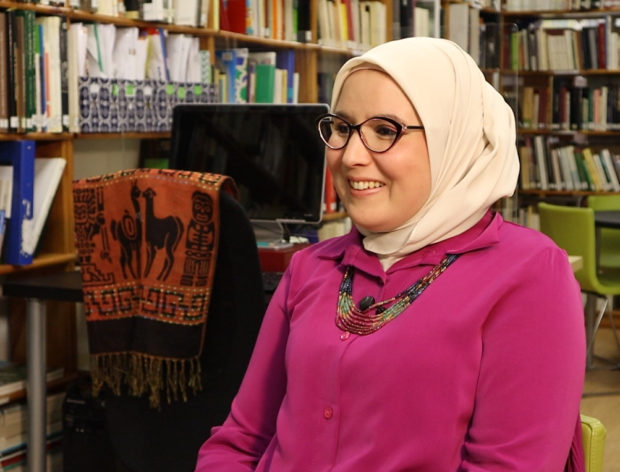
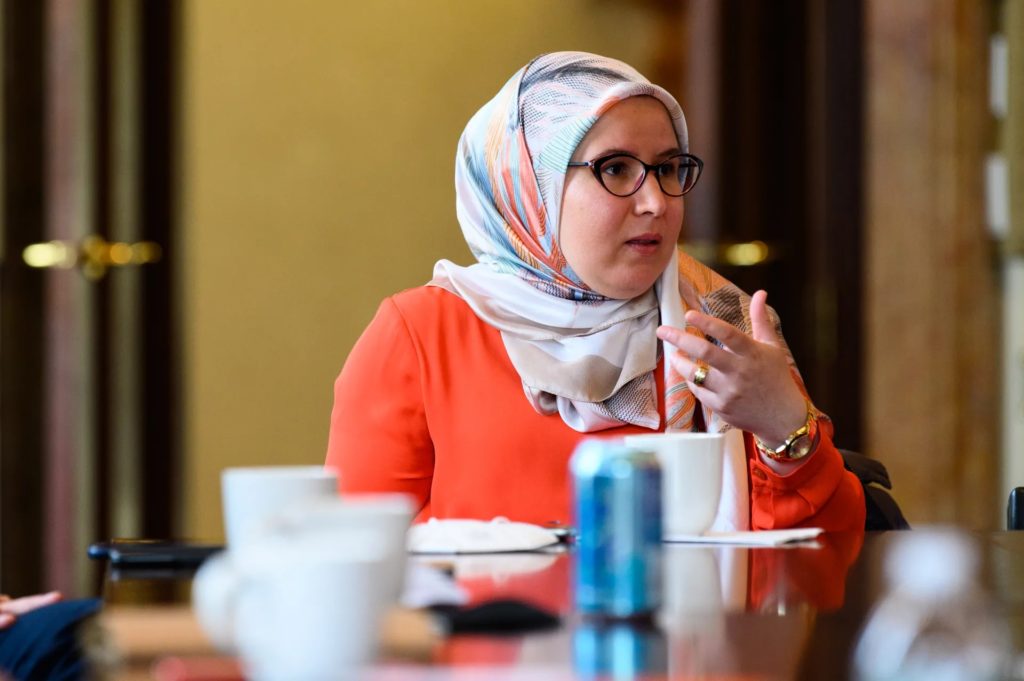
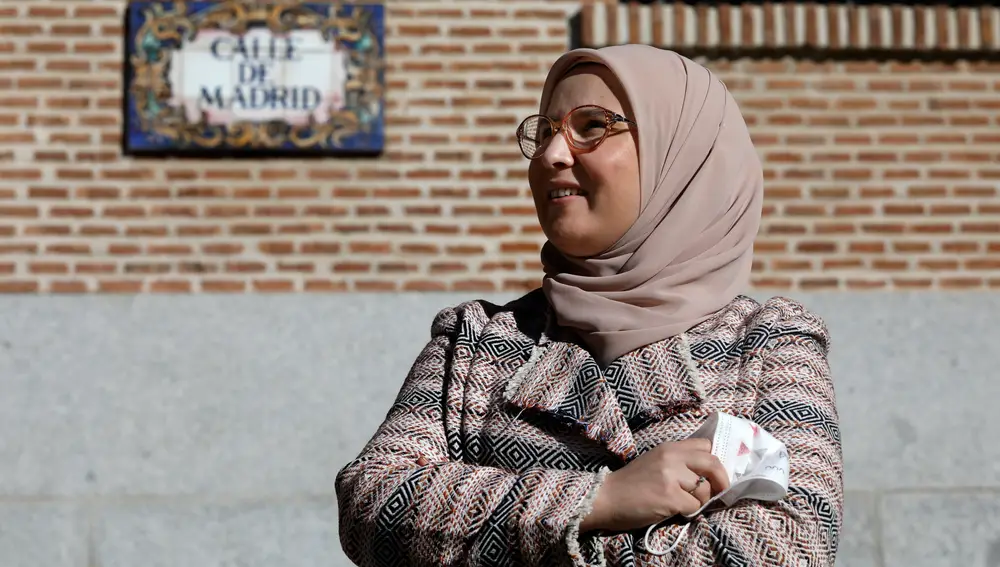
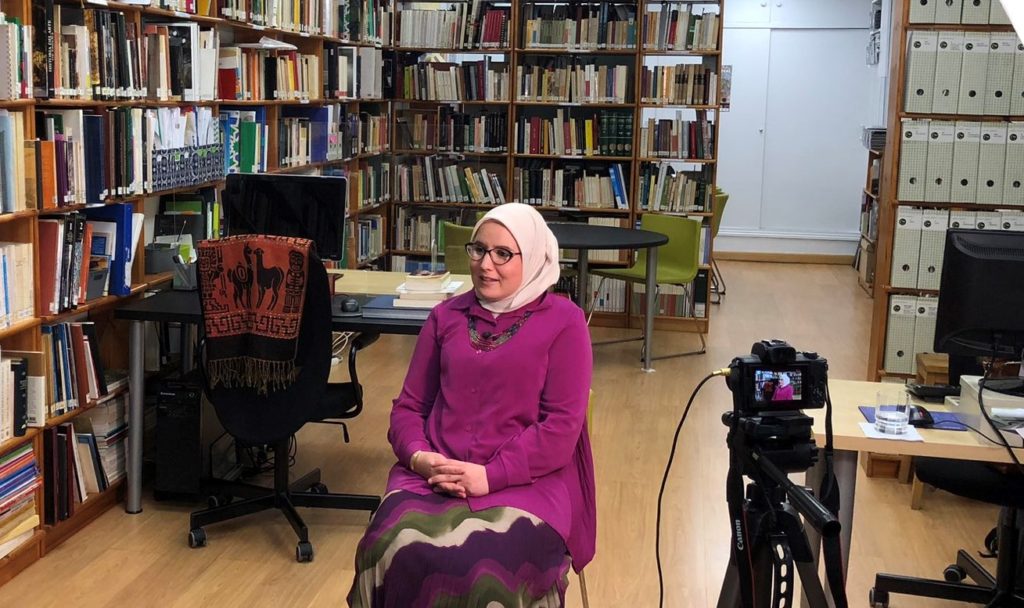
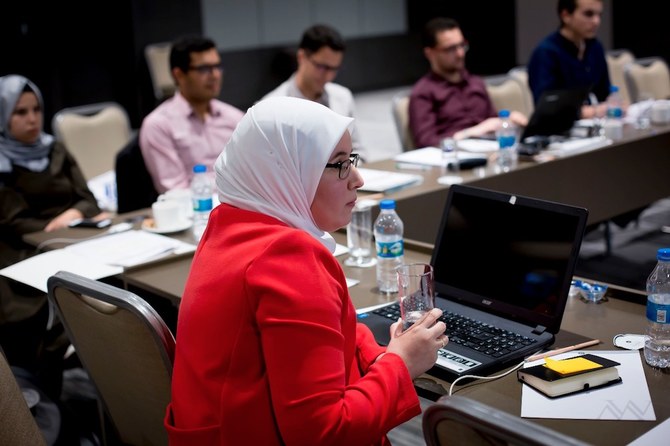


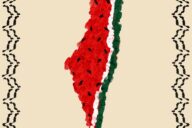










No Comments